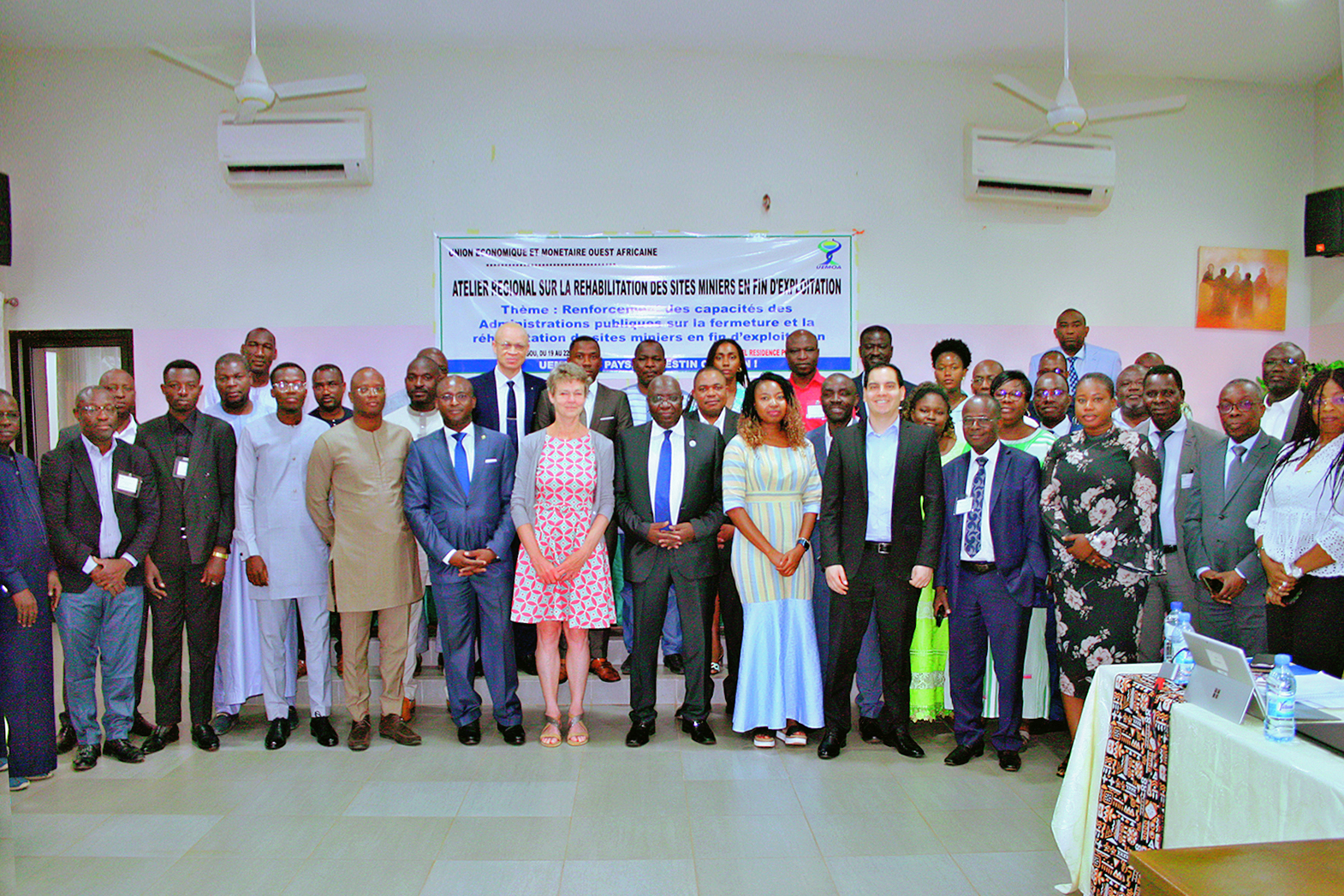The IGF hosted a training for members of the West African Economic and Monetary Union (WAEMU) in Ouagadougou, Burkina Faso from June 19 to 22. The four-day workshop gathered 27 participants comprised of representatives from the ministries of mining, economy and finances, and the environment from seven WAEMU members: Benin, Burkina Faso, Côte d’Ivoire, Guinea, Guinea-Bissau, Niger, and Togo.
The training was organized with the WAEMU Commission Department on Development of Enterprise, Mines, Energy and Digital Economy. It was facilitated in partnership with the Netherlands Commission for Environmental Assessment (NCEA) and with contributions from WAEMU member participants.
The main objectives of the training were to:
- Familiarize participants with good physical, chemical, and biological practices in mine rehabilitation, closure, and post-mining transition;
- Discuss social aspects of mine closure and rehabilitation and highlight the importance of community and government engagement from the start; and
- Engage in dialogue with participants to reflect on how to strengthen achievements and find opportunities for improvement.
The workshop was opened by the Department Commissioner himself, Mr. Paul Koffi, who stated the importance of the workshop for the improvement of mine rehabilitation and closure practices in the WAEMU member countries.
Sessions at the workshop covered planning mine closure as early as the environmental and social impact assessment stage, applying the mitigation hierarchy to manage impacts on biodiversity as part of mine rehabilitation, including community engagement in post-mining land-use decisions, implementing financial assurance requirements with the help of costing exercises, and post-closure monitoring and relinquishment.
Discussions about the social aspects of mine closure and rehabilitation highlighted the potential for both positive and negative impacts. The resumption of agricultural activities and economic reconversion were often cited as opportunities. Challenges mentioned include the resurgence of land disputes and the degradation of infrastructure—for example, related to water, electricity, and transport. Discussions about the technical aspects of mine closure and rehabilitation also highlighted the importance of having the appropriate technical capacity in government agencies to not only know what to demand from mining entities but also to have the ability to properly supervise their compliance on infrastructural, operational, and monitoring commitments.
Participants concluded that not only do ministries of mining, environment, and finance need to be engaged in mine closure and rehabilitation but that there is a need to involve other actors as well: other sector ministries, their decentralized services, and local authorities.
The workshop concluded with the approval of the training report by the WAEMU commission and its members.
A training report will be shared/published in the coming days.

